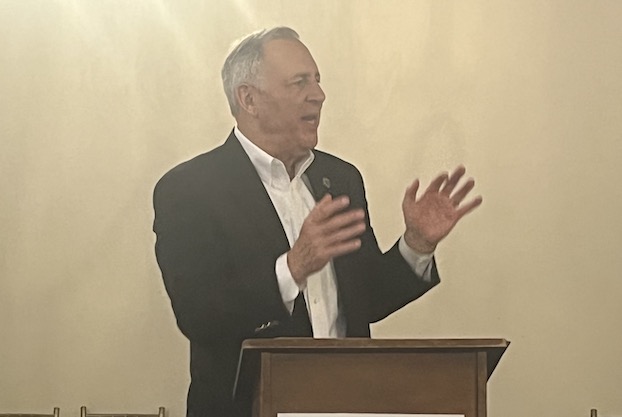La. burning through unemployment funds
Published 6:00 pm Wednesday, July 29, 2020
Louisiana’s unemployment fund is about to run dry.
The fund — which had nearly $1.1 billion when the pandemic made its initial mark in March — now has $382 million and is dropping about $50 million a week. At that rate, it could potentially be depleted by September.
Some 300,000 are now receiving unemployment benefits in Louisiana as public health orders have led to business closures and layoffs.
Trending
The state failing to make payments is not an option, said Ava Dejoie, who leads the Louisiana Workforce Commission. That means without a lifeline from Congress, the state would have to take out an interest-free loan from the federal government.
“We will begin borrowing money in September under the current trajectory,” Dejoie told Baton Rouge Advocate newspaper.
And that’s not happened since the oil bust in the 1980s, she said, when Gov. Edwin Edwards borrowed federal money after a prolonged drop in oil prices cost thousands of workers their jobs.
The state isn’t alone when it comes to concerns about running out of money, according to the Tax Foundation.
“Six states, which collectively account for over one-third of the U.S. population, are currently in a position to pay out fewer than 10 weeks of the unemployment compensation claims that have already come in since the start of the COVID-19 pandemic — including those they’ve already begun to pay out,” it stated.
California, which has also been hard hit by the virus, only has about four weeks of benefits before its funds are tapped out, the report noted. Other states with funding for fewer than 10 weeks of benefits are New York, Texas, Ohio and Kentucky.
Trending
The unemployment rate climbed from 3.5 percent in February to 4.4 percent as the outbreak began in March, then skyrocketed to 14.7 percent in April. Since then, it’s fallen at a steady rate — 13.3 percent in May, 11.1 percent in June — but there are still significantly more Americans unemployed than before the pandemic.
There’s no doubt the business community and our workers are suffering. Louisiana families want and need plentiful help now to restore their finances.
These are bad times. We just hope the state can figure out a way to pay back the federal government — if it does ultimately take out a loan — without increasing taxes or cutting benefits for our already struggling families.





